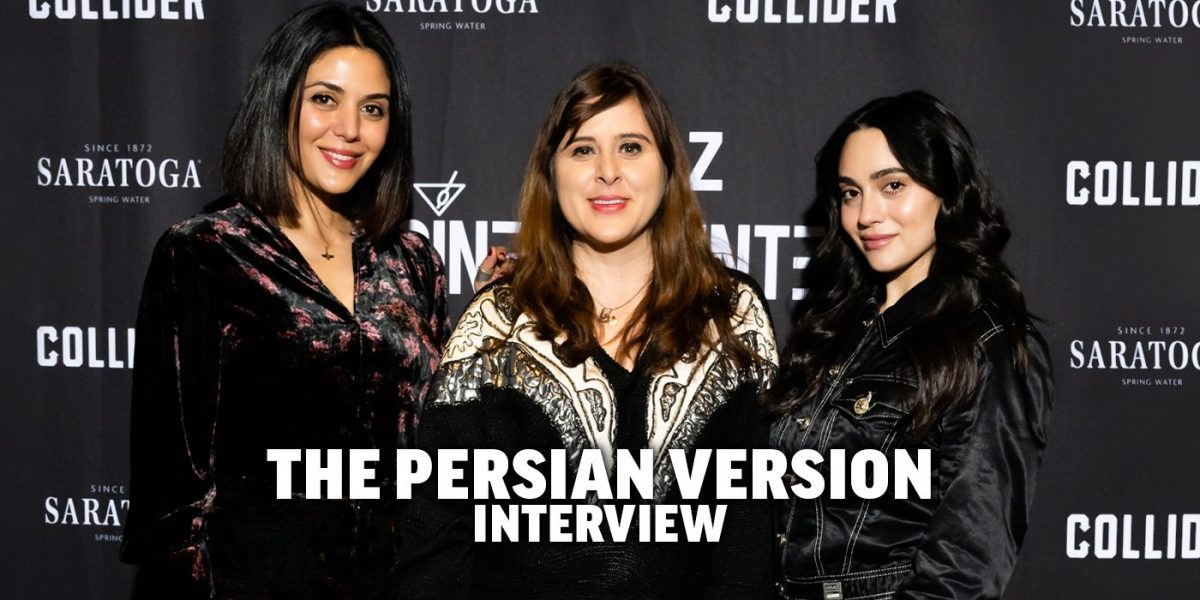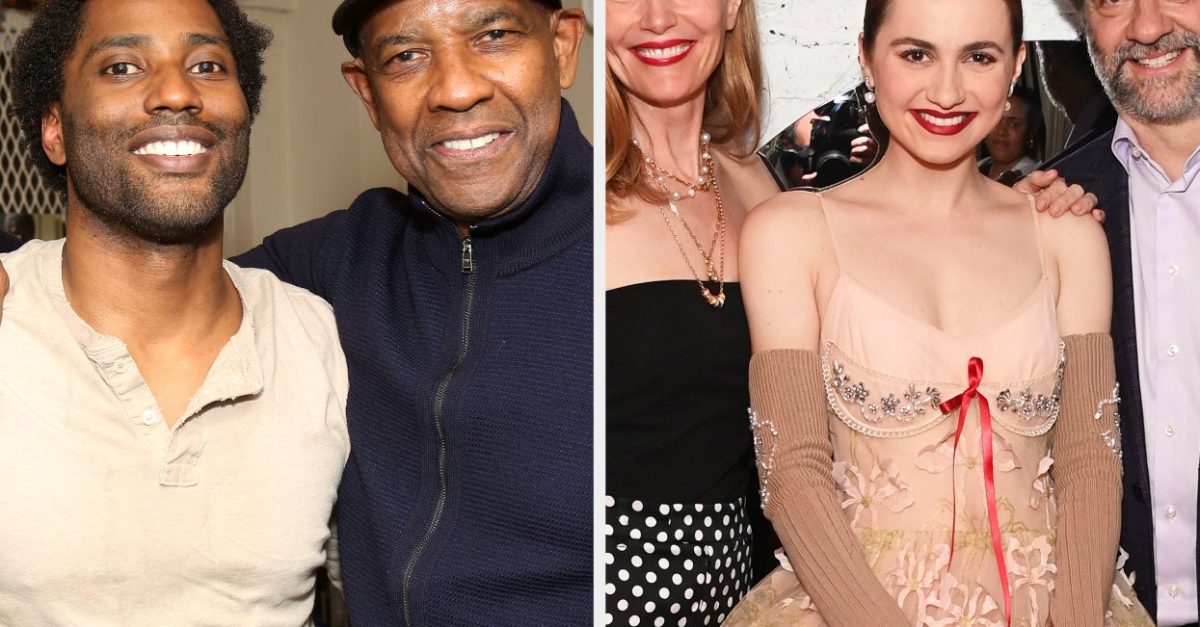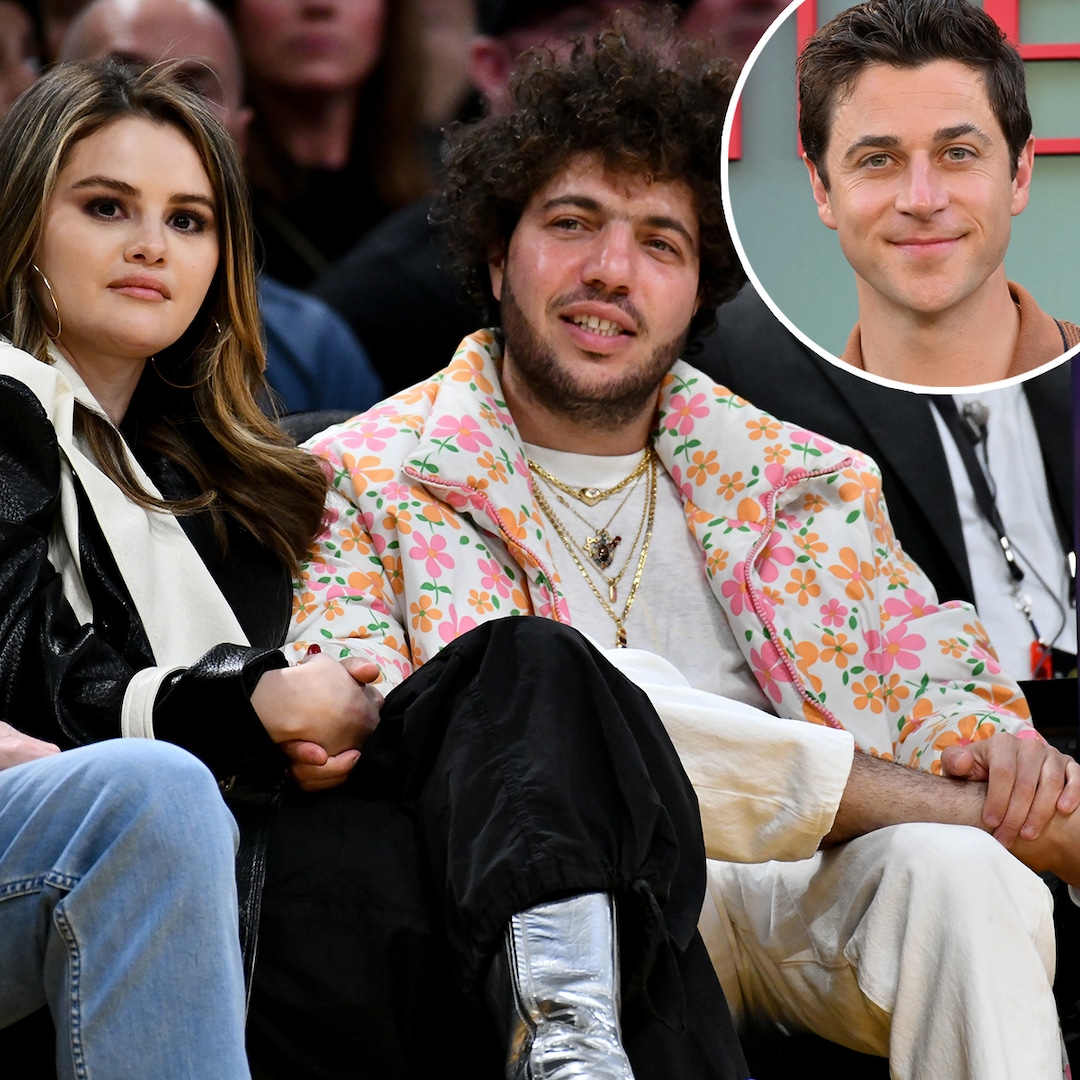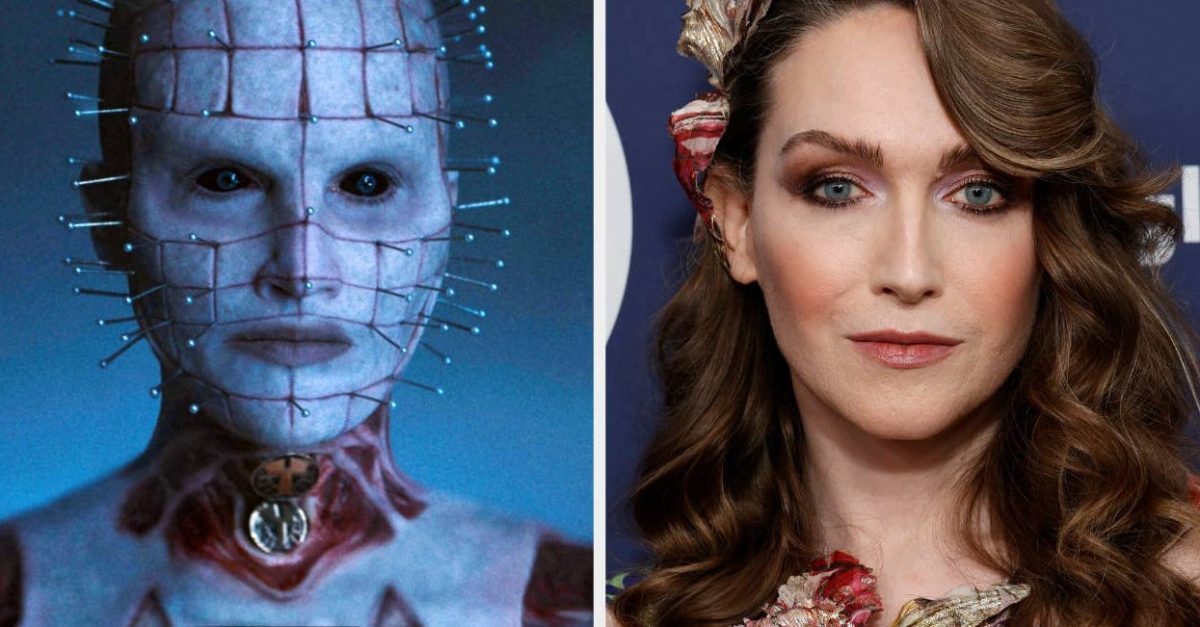
The Persian Version Director on the Filmmaking Technique That Terrified Her
Jan 31, 2023
It’s no wonder The Persian Version won the Audience Award at the 2023 Sundance Film Festival. It’s the best kind of crowd pleaser, one with a big heart that’s loaded with good vibes and energy, but also one with a distinct storytelling style that brings the Iranian-American immigration experience to screen like never before.
Inspired by writer-director-producer Maryam Keshavarz’s own experience, The Persian Version puts the spotlight on Layla Mohammadi’s Leila, a young woman struggling to find a balance between the two cultures and also struggling to mend her relationship with her mother, Shireen, played by Niousha Noor. How does one embrace their truth and remain unapologetically themselves when society and family seem to demand they adhere to certain labels and expectations? Turns out, Shireen understands that predicament more than Leila ever realized.
With The Persian Version celebrating its big debut at Sundance, Keshavarz, Mohammadi, and Noor all swung by the Collider Studio presented by Saratoga Spring Water to discuss their experience bringing Keshavarz’s story to screen. Hear about how Mohammadi wowed Noor while headlining her first feature film, about the filmmaking technique that “terrified” Keshavarz, about what Mohammadi appreciated most about Noor as a scene partner, and so much more in the video interview at the top of this article or in the transcript below.
Image via Sundance Institute
Can you tell us about pinpointing the right assortment of genres to tell this story?
MARYAM KESHAVARZ: I definitely wanted to make a dramedy. I wanted to make a great immigrant story. I grew up watching films like The Godfather, Namesake, Wedding Banquet [and] My Big Fat Greek Wedding, and I wanted to do something that was reflective of my family and my culture, and that means both laughing, crying, all of the machinations of big families. I grew up with seven brothers and one bathroom. It’s not autobiographical. In the movie, it’s eight brothers. In my real life it’s seven, so it’s totally fiction. [Laughter] I wanted to have something that could reflect my experience, my experience of being part of two cultures.
I was born in New York, but I liked to smuggle tapes into Iran. I used to go to Iran a lot and I was a smuggler of music into Iran — Michael Jackson, Prince, Cyndi Lauper. Because back then, after the revolution, Western music became forbidden, and my cousins were dying for music so I used to stick it in my underwear and just bring it across the border, and I would emerge and the dancing would begin. And in America, we grew up struggling economically, but our communities always got together, the Persian community, and we would listen to Persian pop music. So music, pop music in particular, of both countries, are very important. And then the film ends with a Persian version of ‘Girls Just Want to Have Fun’ sung by Niousha Noir and composed by Rostam Batmanglij, she’s our composer from Vampire Weekend, who’s also Iranian American and queer. So it was East meets West as a way to end the movie on my favorite song growing up.
I couldn’t imagine a better way to end this movie.
Niousha and Layla, what would you say is the biggest difference between how you pictured your character on day one and who they turned out to be as you got to explore them more while making the movie and working with this ensemble?
LAYLA MOHAMMADI: I feel like finding the empathy with this character was an incredible journey. She went through so much and she always felt like she didn’t have a place of belonging in either country. She always loved both countries, but she didn’t feel like she belonged in either one. She didn’t feel accepted [by] her mother. She felt like she wasn’t able to be who she was and be loved by her mother. That’s what she thought. And so, being able to do this with Niousha was an incredible experience finding her and realizing it’s okay to be tough. And the reason she’s tough is because she’s trying to understand why she feels like an outsider in her own family. There’s eight boys and she’s the only girl so it’s hard for her to open up. So that was something that I learned on the journey because coming in, I read it and I saw so many layers to Maryam and then talking to her and trying to understand her and how was — I got on the phone with her multiple times and anytime she would tell me a story, I’d jot little things down because I wanted to do her justice and honor her story the way that she wanted it done.”
Image via Photagonist
To follow up on that, what’s a seemingly silly detail that you wrote down that wound up being important to making your version of Maryam feel whole in this movie?
MOHAMMADI: Definitely that it was okay to be tougher. Her relationship with Tom’s character, who plays Hedwig, she didn’t want this. It wasn’t planned. So I think it was really important in the beginning, she was telling me it happened on accident. She had just gotten out of a relationship. She went to this party. She wore this incredible Burkini Halloween costume, which was phenomenal and …
KESHAVARZ: You know what happens when that happens!
MOHAMMADI: Exactly! Something happens, and it changed her life forever.
KESHAVARZ: Be careful what you wear to Halloween parties. It could change your life. [Laughs]
MOHAMMADI: But it’s that strong, independent woman who doesn’t want someone to control her. She wanted to be able to do this her way. That’s why her first relationship didn’t work out, because she didn’t want to have to give up her life and her opportunities and she wanted to live her dreams.
KESHAVARZ: Which is similar to what the mother wants, but wasn’t able to do, so I think it’s also about women being told they can’t do something and they find a way to be authentic to themselves. My mother, Niousha’s character, is told that she can’t finish school. She has to get married and, in fact, that’s what happens. But later on, she finds a way to not only finish school but to become ultra successful, and at every turn, they’re paralleling each other’s stories. They just don’t realize it. Society has told both of them they can’t be who they want to be and they find a way. But in the process, they’ve kind of alienated each other.
Niousha, going back to my earlier question, what’s the biggest difference between your vision of the character on day one and who she turned out to be as you explored all the phases of her life?
NIOUSHA NOOR: There’s so many complexities and layers to her, and I think for me, really studying that and the psychology of what she actually went through, the traumas and almost when she moved here, some sort of disassociating from what she went through, wanting to start new. And she’s so driven. And she’s driven by this inner strength that pushed her to rise from being a housewife to a business mogul. But for me, it was just finding all the nuances and the layers to her character, why she does what she does. Why is her relationship with her daughter so complicated? I discovered a lot and I had the pleasure of speaking to her mother and asking certain questions, which I didn’t — I was like, what can I ask? What can I not?
KESHAVARZ: Although she might not tell you the truth but … [Laughs]
NOOR: But just being so inspired by her. I think I just got to know her more, and also my own mother because the sacrifices that she made and, you said something earlier about [how] we always grew up thinking our mother was just a mother. We don’t think that they have a past and all these secrets and traumas and things and I, at maybe 25 or something, got to know my mother on a different [level] and all the things that she went through that I didn’t know. So there’s a lot of similarities and stories that ran parallel.
KESHAVARZ: I think writing it, to put aside the title of ‘mother’ or ‘father’ and think of your parents as 13 and 14 and teenagers, it was eye opening and humbling and I had to really dig deep and push myself to think of things from her point of view. And that really changed my relationship to myself, to my own daughter, to my mother. I realized also when I became a parent, man, we’re just faking it. We have no idea what we’re doing, but here’s this little kid who thinks I know what I’m doing, and that was also eye opening to me. We struggle so much. We think that we’re born being mothers, you know? We’re born with the instincts, we know exactly what to do. That’s what society has told us, but it’s not true. You become a mother through the process of having to make the right decisions, and sometimes you don’t always make the right decisions. And I think it’s about forgiving each other and finding a way that — these are two women that have to understand each other as women, not only as mother and daughter.
Image via Photagonist
Exploring that in a movie probably requires the ultimate scene partner. So for each of you, can you tell me something about the other that you appreciated and maybe helped you access something in your own character that you wouldn’t have been able to without them?
MOHAMMADI: The amount of empathy. When it wasn’t even my coverage, I was crying during some of [Niousha’s] takes. She’s so open and honest and wears her heart on her sleeve and taught me so much. This was my first film so I went in nervous and she was just a guiding light, her and Maryam, and everybody to be honest. Every single person in this cast put so much into their characters. There wasn’t one person who didn’t respect someone’s process.
KESHAVARZ: And there was so many first timers. The young version of my mother is played by a 14 year old from Iran. She’s a high school student, never acted. She has a four page monologue in one shot. Young Leila, obviously, is just eight years old. And then we have Niousha who’s a trained actor who’s been in many things. It was a nice mix of people’s experience, but I think you guys all connected really well. We also spent a lot of time in rehearsal. It was very important to me not just casting great actors, but cast people who would put their ego aside and become part of a family. Our rehearsal process, although we didn’t have much of it, every day we had off we rehearsed and we changed dialogue, and we made it more fun and more funny and more real. That was so important to me, and I think through the process everyone got to connect with each other.
NOOR: In the beginning [Layla and I] didn’t bond as much because we were in different scenes until the end, but I remember thinking, is this really her first film? Because you’re such a pro. I mean that and I’ve told you. There was one night in New York that I was drinking and I was like, ‘Listen, I need to tell you something. You’re a star! You have the it factor! You’re amazing!’ And I genuinely meant that. And same with her just having these very complicated scenes, emotional scenes. Looking at her and just seeing the genuineness, I suppose. She allowed me to feel and go to those places easily … And I agree with you; it’s really important who you work with. And to continue what Maryam was saying, this whole cast, we all knew that we had something special and there were no egos. We were just on the same page. We knew this was a special story, and it hasn’t been done before. There hasn’t been an Iranian American immigration story with this sort of, as I was saying before, it paints a fuller picture of who we are as Iranians and we haven’t had that.
KESHAVARZ: And also the dynamic. They’re sparring amidst a huge family of men, and it’s all the men also navigating their thorny relationships and how the brothers react. The setting and the tapestry of where they’re having their scenes and all the men in the background is so important to feel like they’re trying to — it’s a chess game. The lunch scene is so important because you see all the other characters who have small roles, but they really are setting the backdrop for their relationships, so you have a sense of this family.
I was really impressed by how memorable the supporting ensemble is. You have a really large group of people and I feel like someone could get lost in the mix, but I knew every single brother.
KESHAVARZ: They’re so distinct, right? [Laughs]
And it’s screen presence, too! It’s believability not just in terms of the events of their lives that we’re experiencing right now while watching the movie, but feeling the history that’s influencing it too and it’s very effective.
Image via Photagonist
They’re gonna make me let you all go soon, but I wanted to ask about one specific technique you use because I think it’s one of the most difficult things to make work in a film — breaking the fourth wall. What would you say is a do and a don’t when you incorporate that kind of storytelling in a script?
KESHAVARZ: It is very challenging, technically and also because it can be a distancing technique, right? Because you’re talking to the audience. But here I wanted it to be the opposite. I wanted it to be the character confiding in the audience, and the character demanding their own voice. I always knew that it would be three stories from three women. I think what brought it is that in Leila’s versions that technique is typically used in a comedic way. And I think in the later versions, it’s more to reveal the character’s true deep desires. I think we use it a little bit differently. I think it’s a very tricky technique. I was terrified. I’m not gonna lie. [Laughs] But I felt it was what was needed for the story. It wasn’t just a cool technique. When Leila stops time in our film, she sets the language that women or this character has the power to stop time, and that that baton is passed through the generations in different ways. Because Leila is not only the filmmaker and the storyteller, but guess what, every generation is a storyteller when they come to a new country, and they demand that they stop time. I knew that that had to be the technique visually for us to connect the storytelling generations in some way.
Special thanks to our 2023 partners at Sundance including presenting partner Saratoga Spring Water and supporting partners Marbl Toronto, EMFACE, Sommsation, Hendrick’s Gin, Stella Artois, mou, and the all-electric vehicle, Fisker Ocean.
Publisher: Source link
I'm Genuinely Curious If You Think These Nepo Babies Are More Talented Than Their Famous Parents
Tell us how you really feel!View Entire Post › Disclaimer: This story is auto-aggregated by a computer program and has not been created or edited by filmibee.Publisher: Source link
Oct 23, 2024
Selena Gomez’s TV Brother David Henrie Details Meeting Benny Blanco
Selena Gomez isn’t the only one who thinks Benny Blanco is magical. The Wizards of Waverly Place alum’s onscreen brother David Henrie—who stars in and executive produces upcoming sequel series... Disclaimer: This story is auto-aggregated by a computer program and…
Oct 23, 2024
15 Side-By-Sides Of Horror Movie Monsters And Villains Vs. The Actors Who Play Them
I can't believe how some of them totally transform.View Entire Post › Disclaimer: This story is auto-aggregated by a computer program and has not been created or edited by filmibee.Publisher: Source link
Oct 22, 2024
Unreleased Clip of Liam Payne Working on One Direction Song Revealed
"I am absolutely devastated about the passing of my amazing friend, Liam," Niall wrote in a lengthy Instagram statement. "It just doesn't feel real. Liam had an energy for life and a passion for work that was infectious. He was…
Oct 22, 2024











